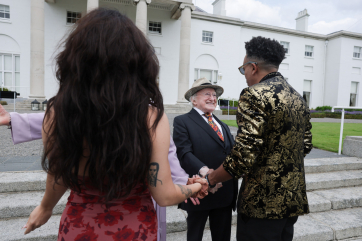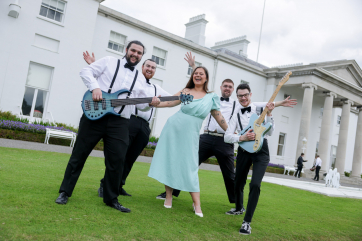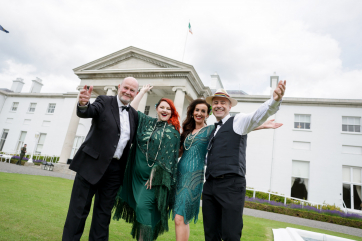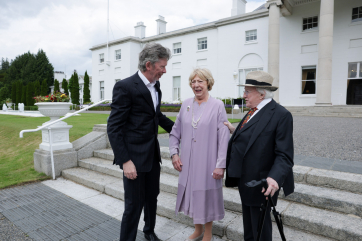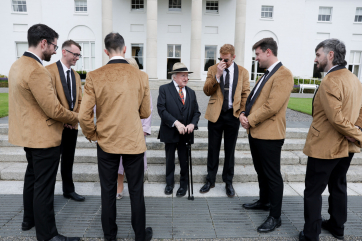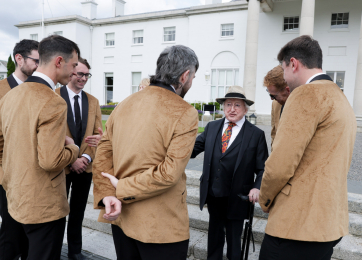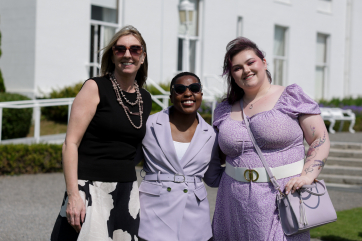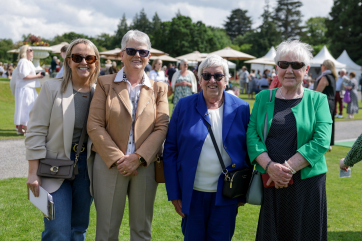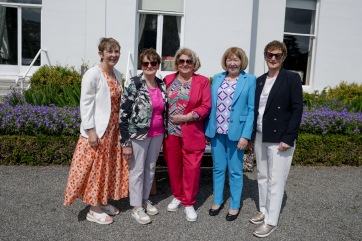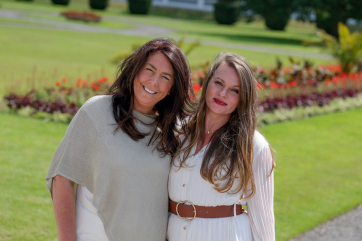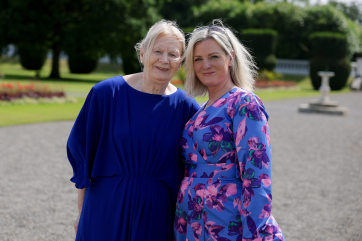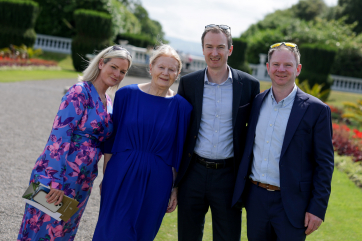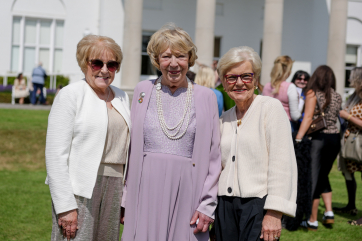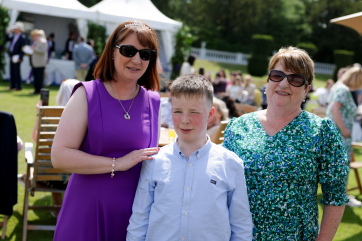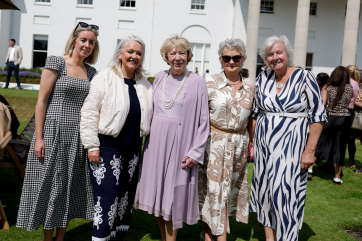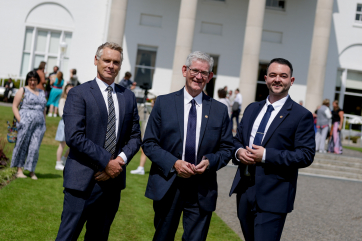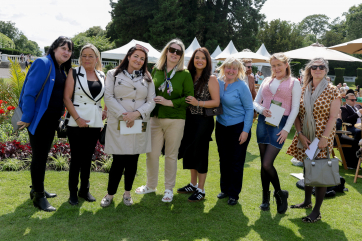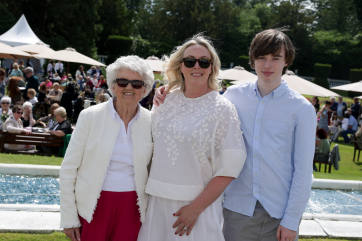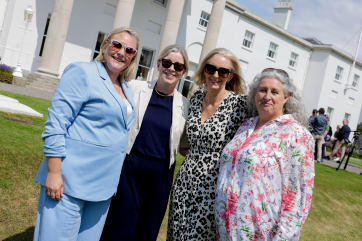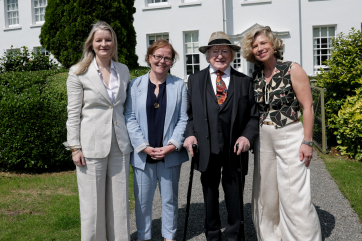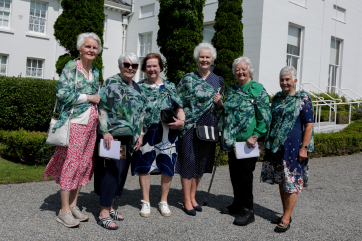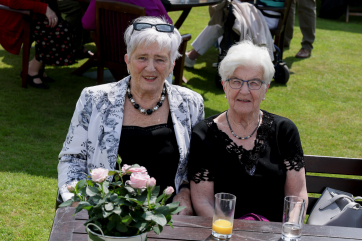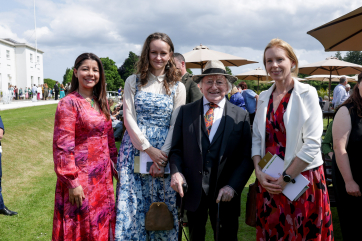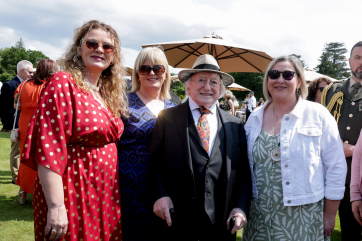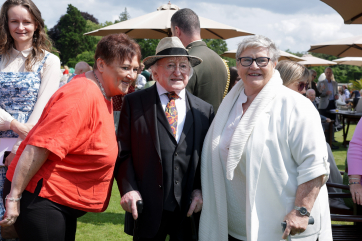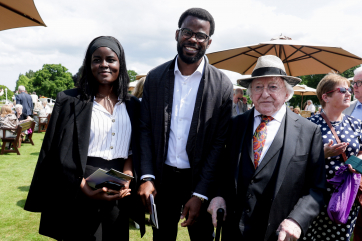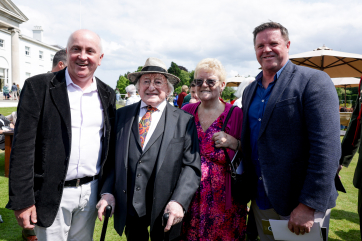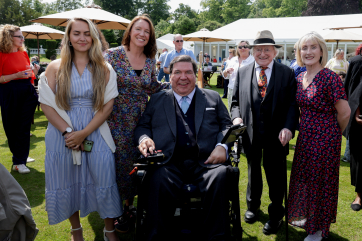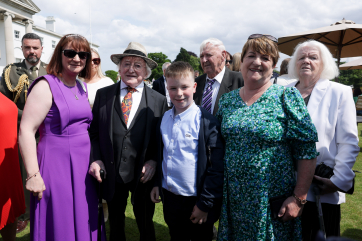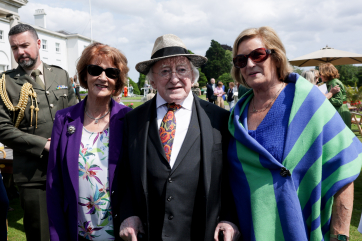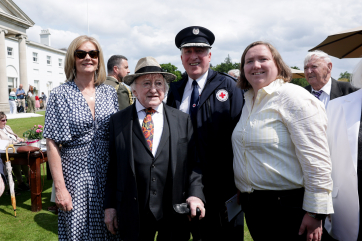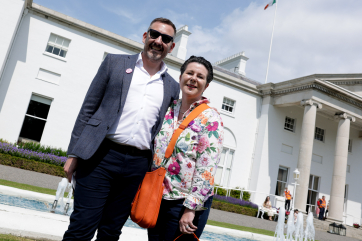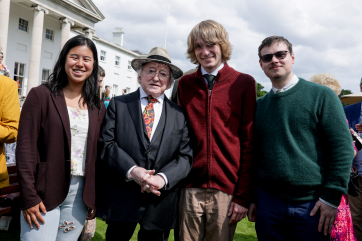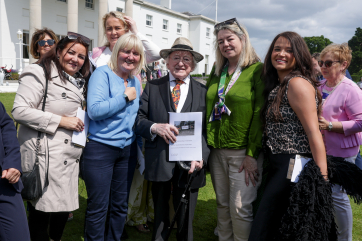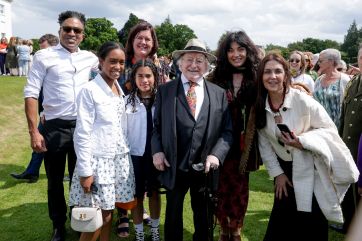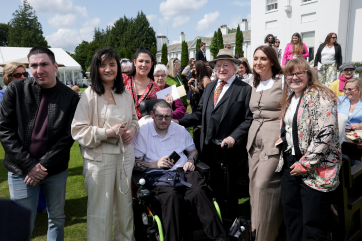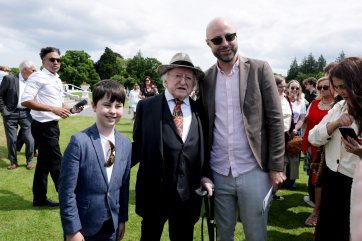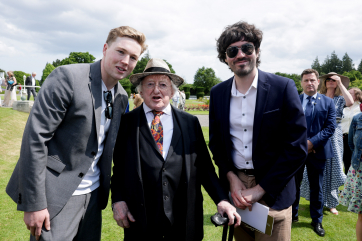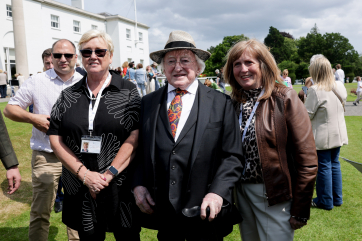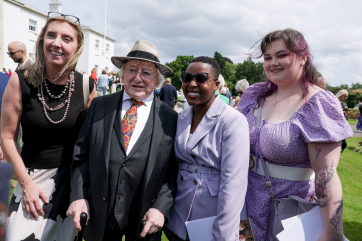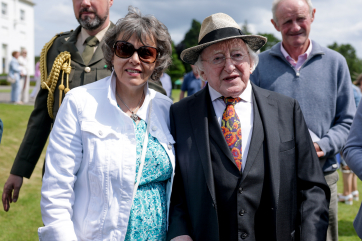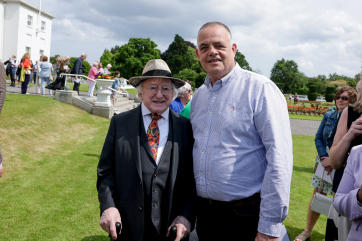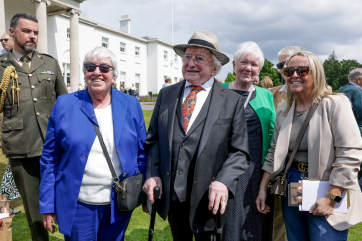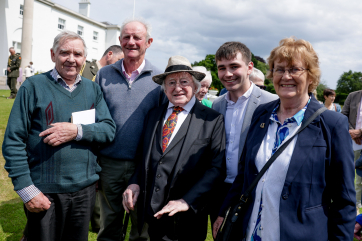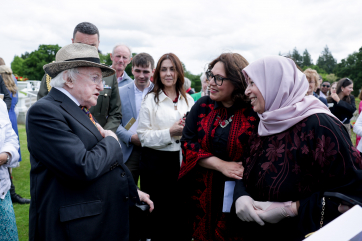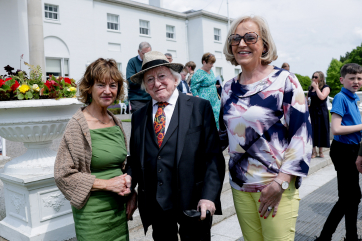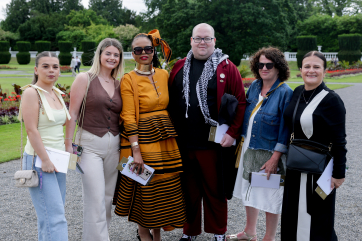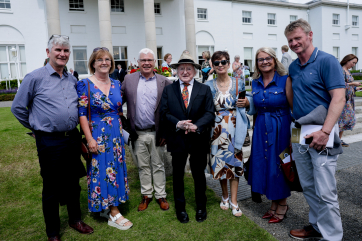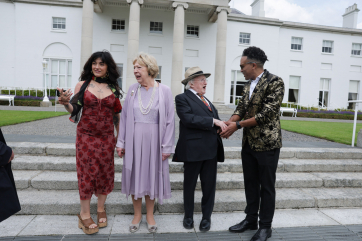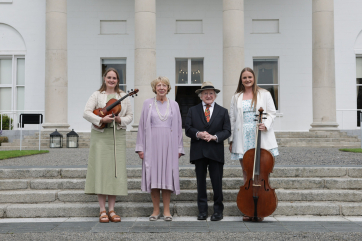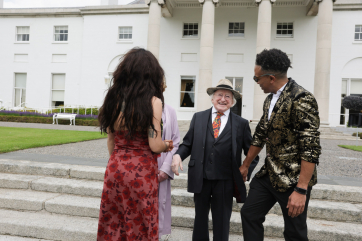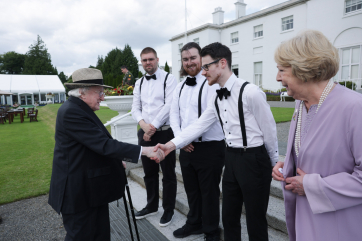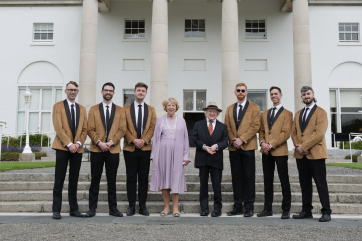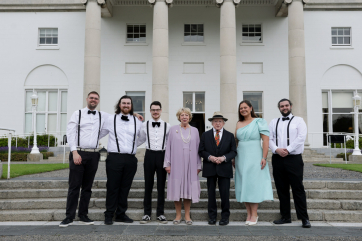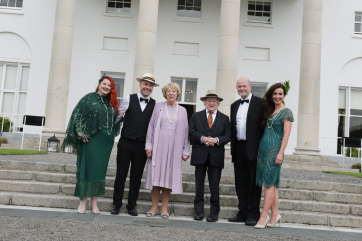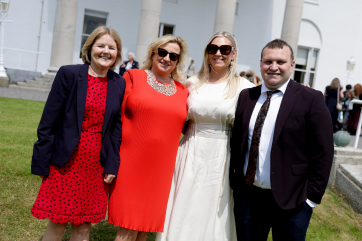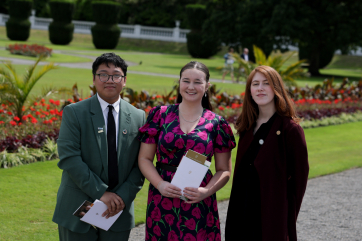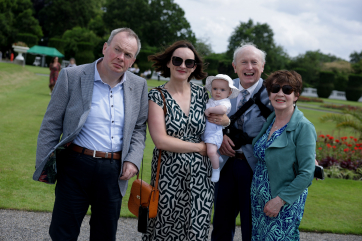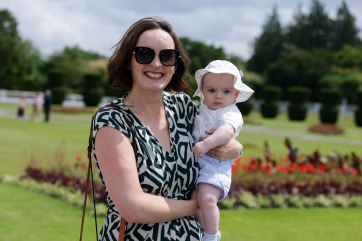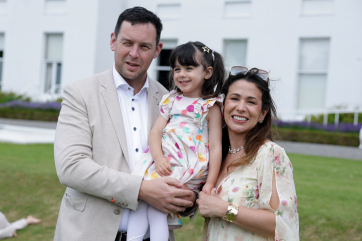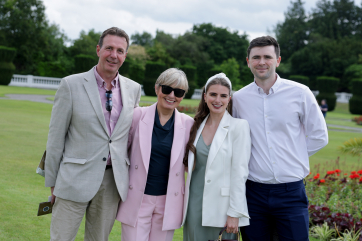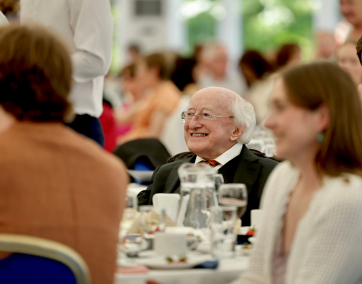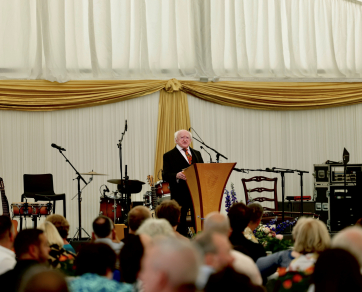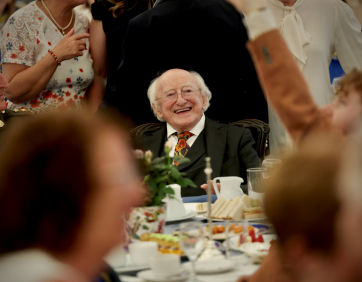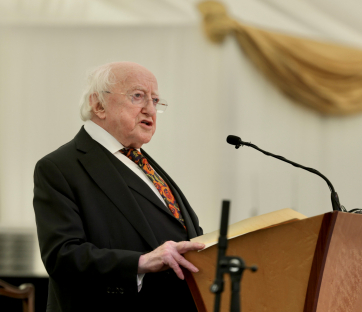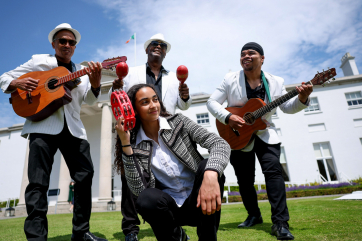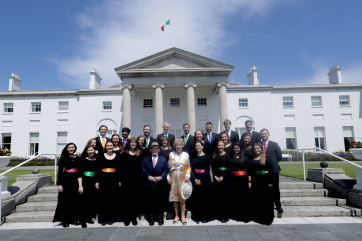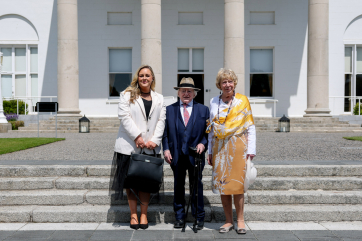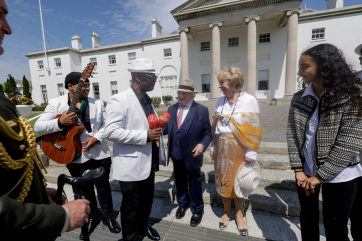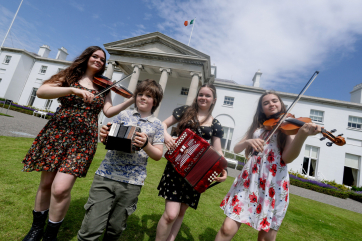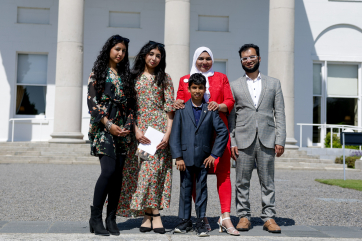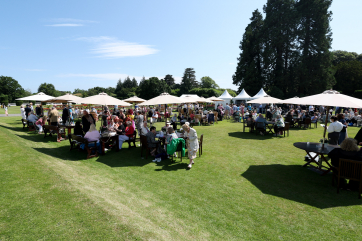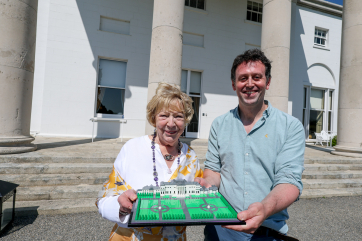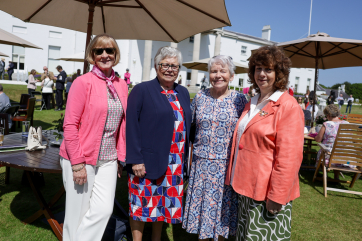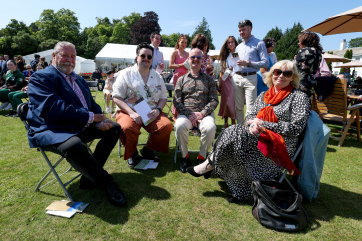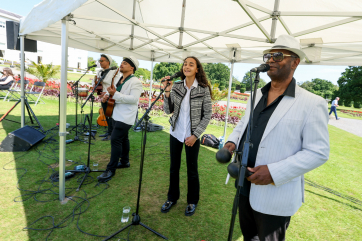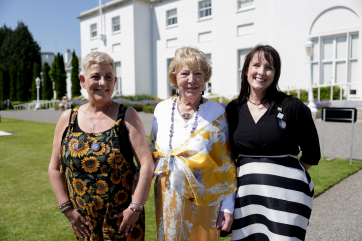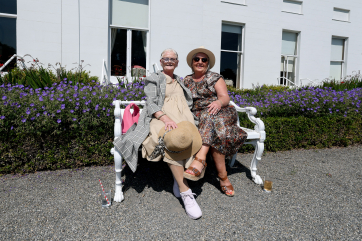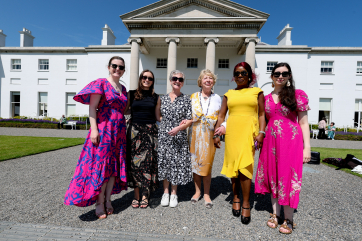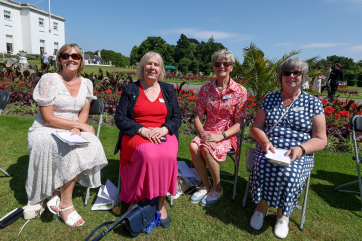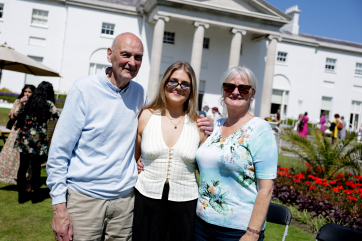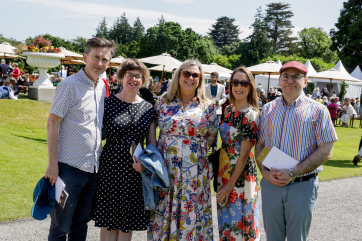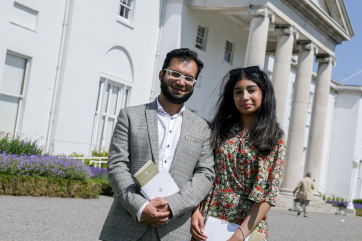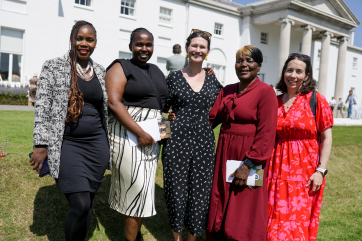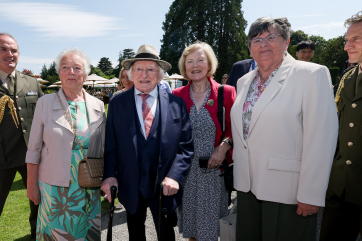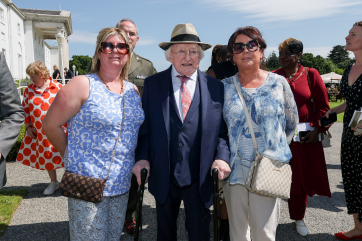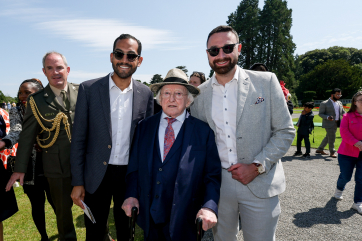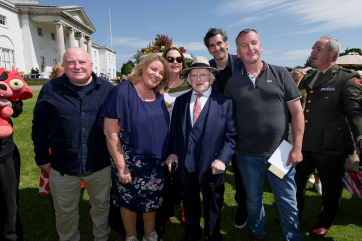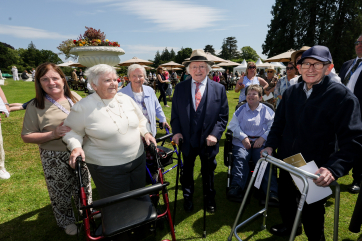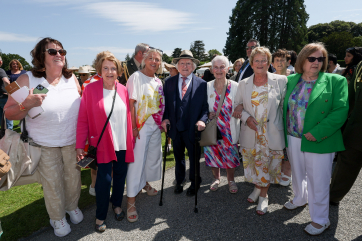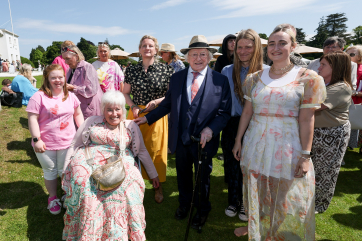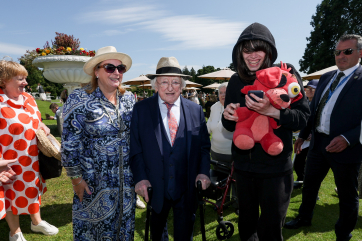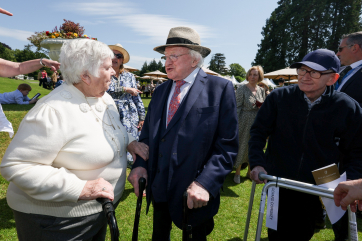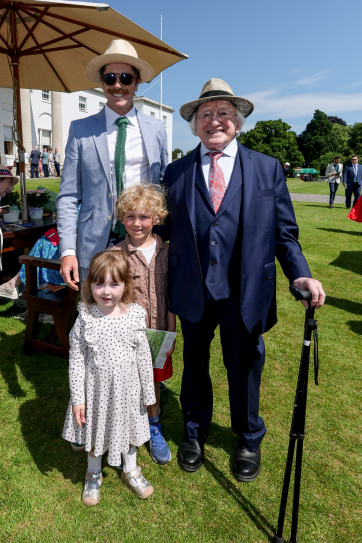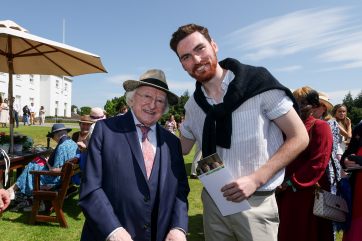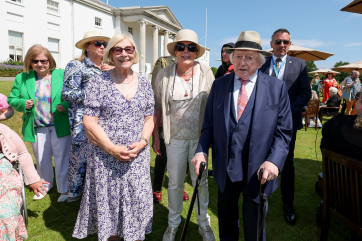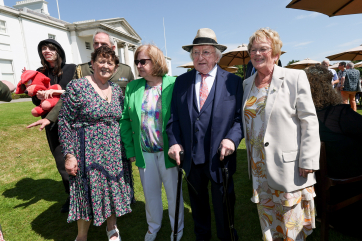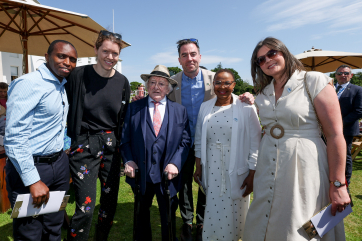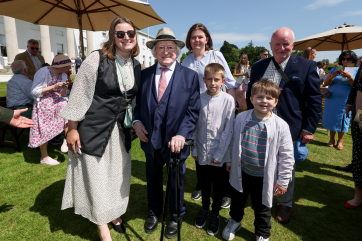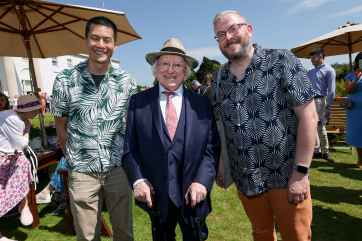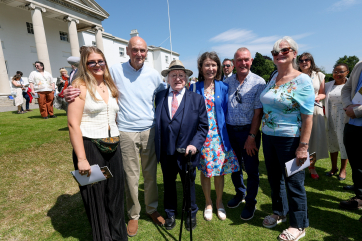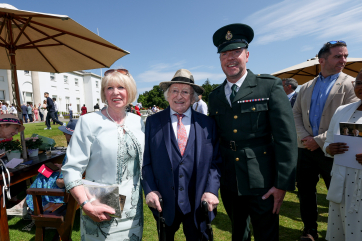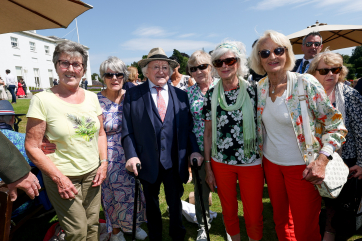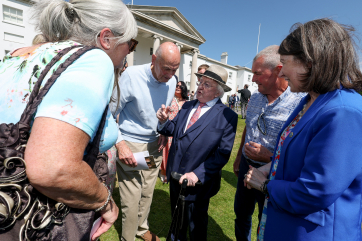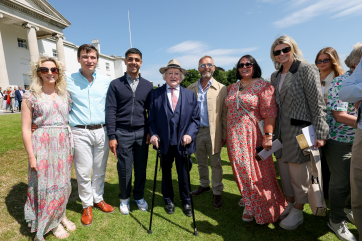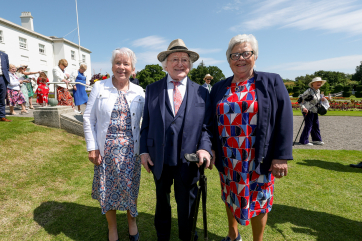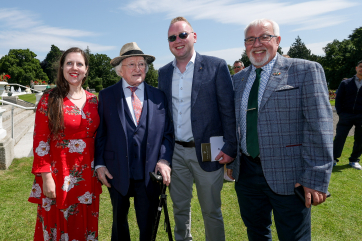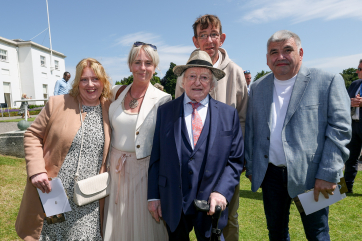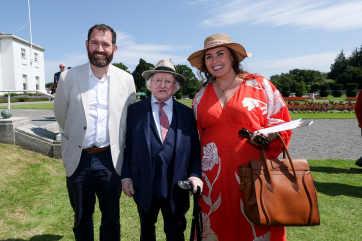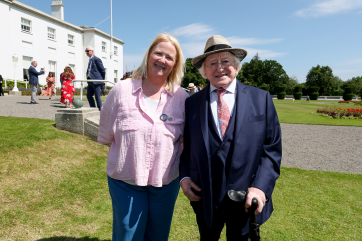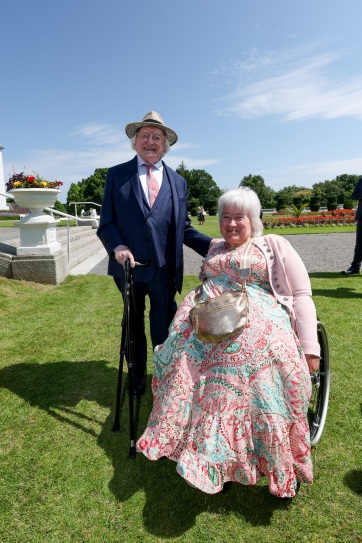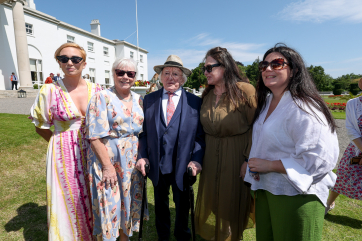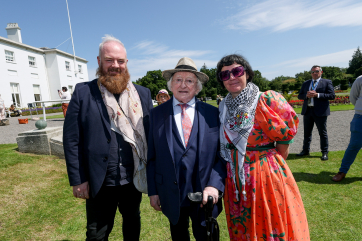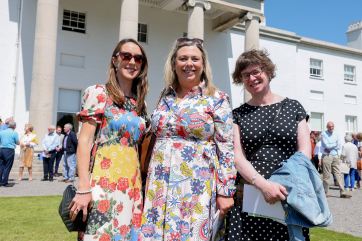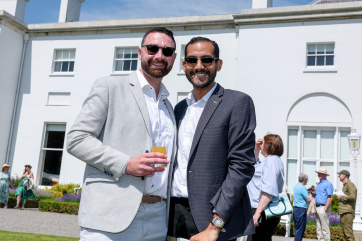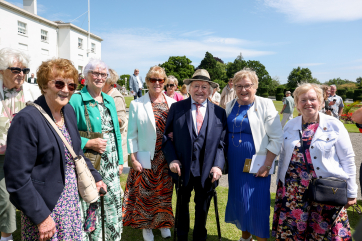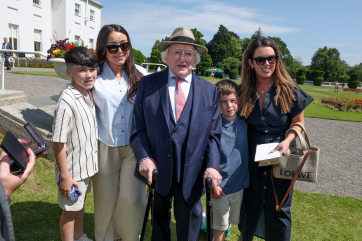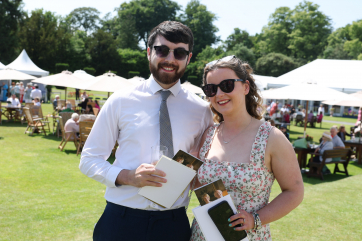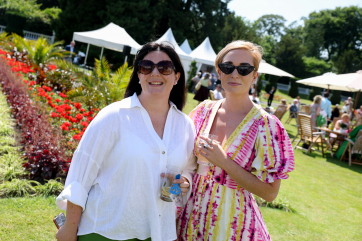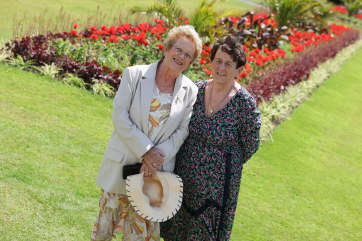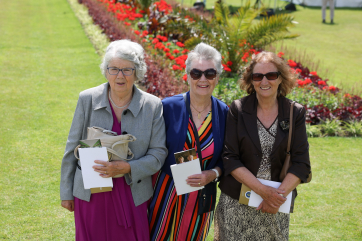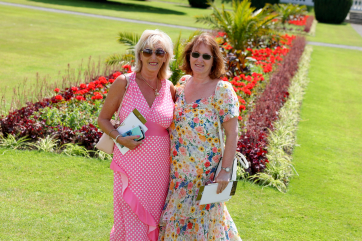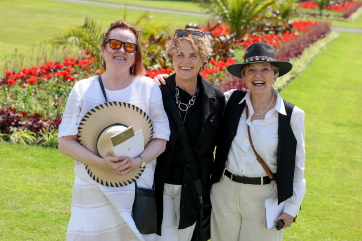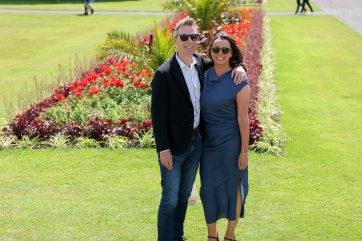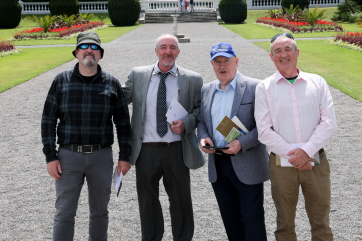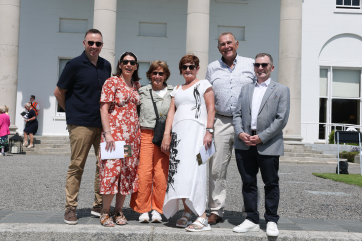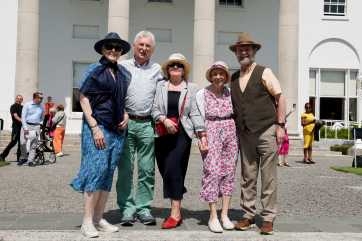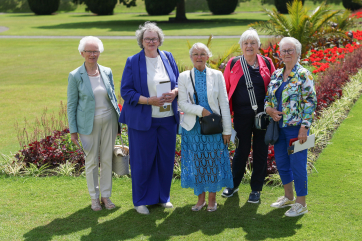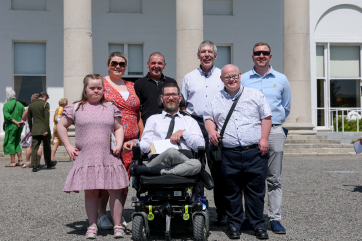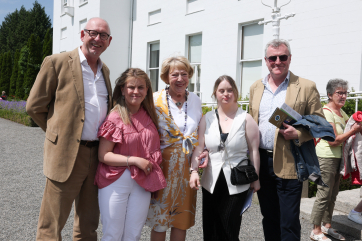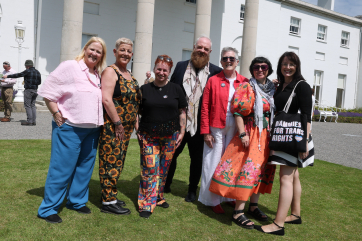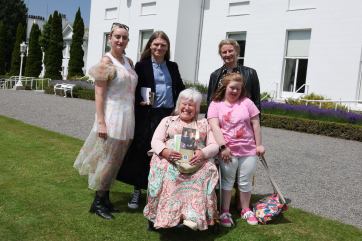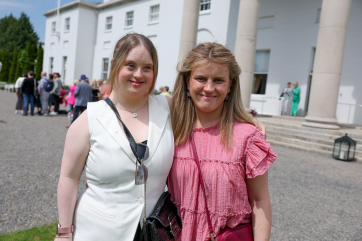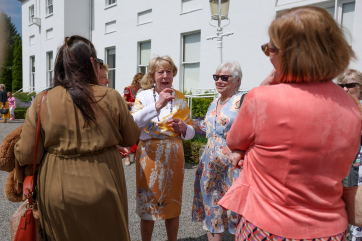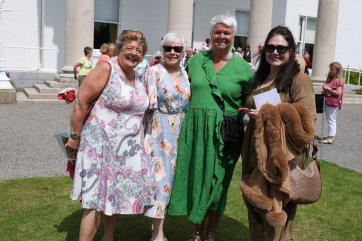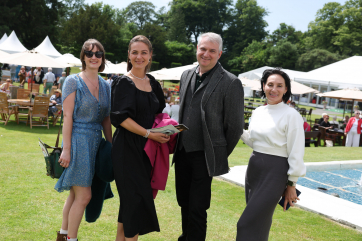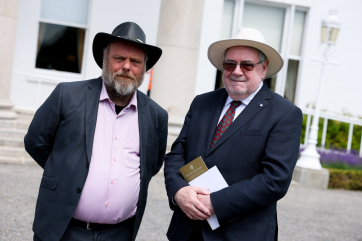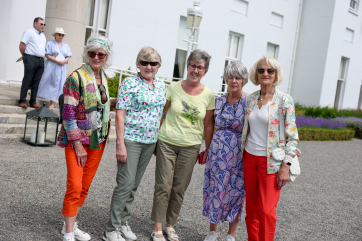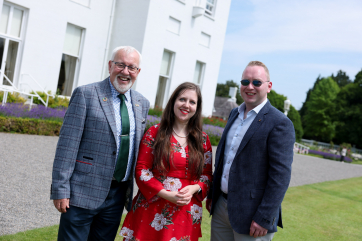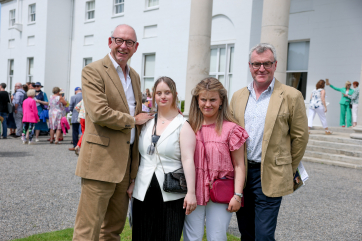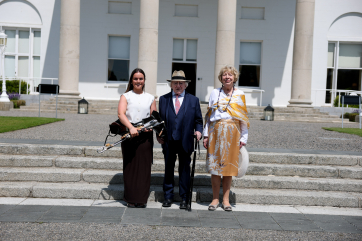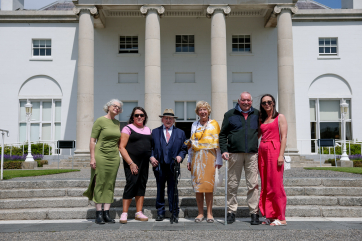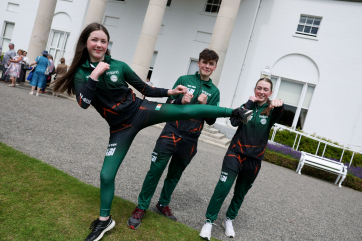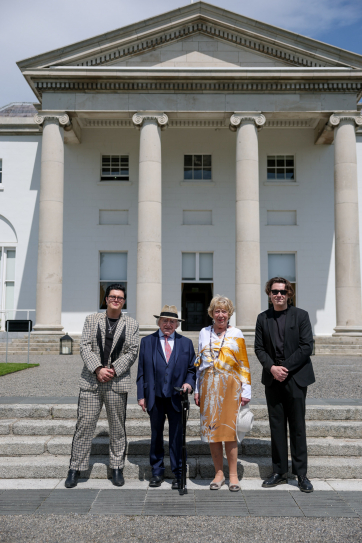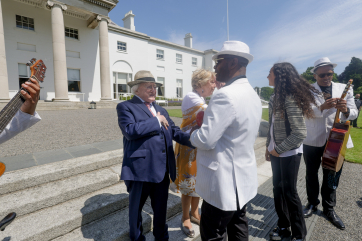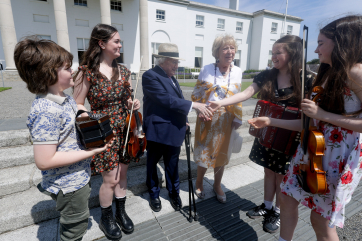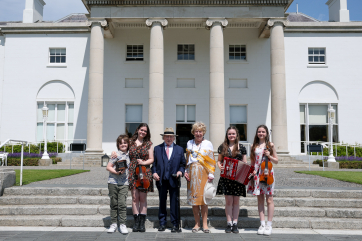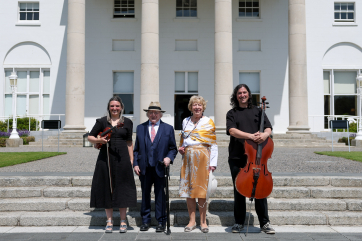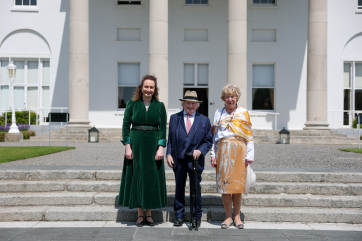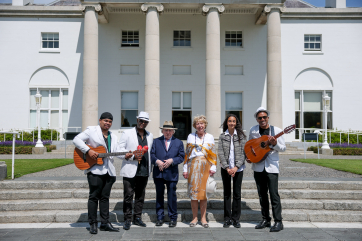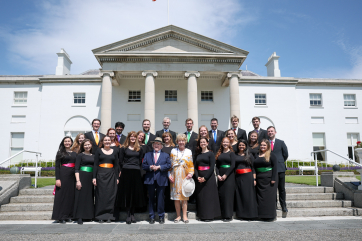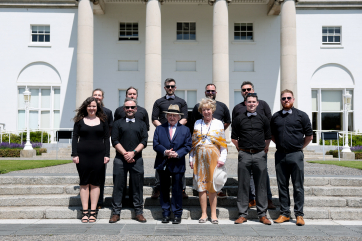Speech at a Garden Party Celebrating Bloomsday
Áras an Uachtaráin,15th June 2025
A cháirde,
Fíorchaoin fáilte rómhaibh uilig d’Áras na Uachtaráin agus muid ag tabhairt aitheantas agus onóir d’Éireannach atá clú agus cáil air ar fud an domhain.
Sabina and I would like to welcome all of you this afternoon to Áras an Uachtaráin, the home of all Irish Presidents since 1938 for this, our second garden party of the season.
Today we celebrate Lá Bloom, Bloomsday, a day immortalised in James Joyce’s 1922 novel Ulysses and named after its protagonist Leopold Bloom, a day that immortalises the 16th of June 1904.
While Bloomsday has eclectic but impeccable origins from a literary source, now it has become an important day in our annual cultural calendar, one that invites us to recall, in the fullness of James Joyce’s literary and artistic greatness, a writer who is an unparalleled representative of a writer’s struggle for publication, migrant consciousness, of the torture and indifference of memory, above all of seizing the opportunities offered by transience.
On Bloomsday we commemorate and celebrate the life and works of James Augustine Aloysius Joyce, modernist, avant-garde writer, and regarded by so many around the world as one of the most influential and important writers of the 20th century.
May I thank Noel O’Grady for his performance earlier. It is most fitting that Noel is with us here today, on my final Bloomsday mar Uachtarán na hÉireann, as he has sung at so many of our celebrations here in the Áras. He is an integral part of our Bloomsday gatherings, his voice carrying with it the tradition, memory, and resonance that this day so richly deserves.
May I welcome, too, the many individual scholars and so many from groups from the arts and culture sector who are present with us this afternoon on what is an occasion in which we celebrate the enormous and profound contribution of the arts and artists to our lives.
To all of you present, Sabina and I send our warmest of welcomes.
A life without the arts, without the contribution of artists and cultural practitioners, of limited public opportunities for sharing cultural experiences, of never being lifted to transcendence by performance in the many forms of the arts – such a life would constitute a much diminished existence, an unfulfilling encounter with life, one devoid of beauty, creativity, and human expression. A world in which there was no music to move us, no paintings to inspire us or books and films to enlighten and provoke us would be a world stripped of colour, texture and vibrancy.
That is why we must all do what we can to ensure that the arts remain supported at every level in order that they may flourish and that those seeking to make a living from their practice can do so with some level of security and, at a minimum, without fear of impoverishment or being forced to choose between having a family and giving expression to their gift.
When we support artists, or when we call for protection of the cultural space as having a necessary public access, we support viable and enriching democracy, understanding that the arts are a crucial vehicle for active citizen participation. It is never acceptable, therefore, that the arts be treated as something peripheral, marginal, or even dispensable.
I am delighted that this year’s Bloomsday Garden Party will feature a play, Ulysses aWake, from a Blackrock-based street theatre group written by Nastaise Leddy and Iris Park, directed by Nastaise Leddy, soundtracked by Aidan Mulloy, choreographed by Orla McFeely, with sound by Leon Henry, and featuring the incomparable Andrew Basquille. This is theatre for everyone who loves Joyce’s Ireland — a fully dramatised adaptation of Ulysses, and no doubt an enlightening insight into James Joyce’s masterpiece. Sabina and I are greatly anticipating this performance, as I am sure is everyone present today.
Bloomsday has a personal dimension for Sabina and myself. It calls to mind in a particular way the special contribution of Deirdre O’Connell to Irish experience of European and modern theatre. Deirdre would have celebrated her 86th birthday this week.
As founder of the Focus Theatre, Deirdre played her own crucial role in the arts and cultural life of this country. Indeed, I am sure many of you will have your own memories of Deirdre and her much loved and respected theatre. So, today let us remember Deirdre warmly together with her generous artistic legacy.
I am delighted to announce that later this year, Dublin City Council will unveil a commemorative plaque honouring the founding members of the Focus Theatre, a most well deserved recognition in tribute to their contribution to the artistic and cultural life of Dublin and Ireland.
Over my fourteen years as President of Ireland, I have undertaken a number of events to mark the life and work of James Joyce. I have sought to honour the legacy and memory of Joyce in ways I hope have helped to repair, or at least gently redress, the often strained relationship between Ireland and one of its most brilliant — and most exiled — sons.
For while there can be no doubt that Joyce’s immortality is ensured, his name is forever etched into the cultural consciousness of a nation that now rightly celebrates him as one of our greatest writers, James Joyce was also one of our most famous exiles, above all it is important that we recognise the extraordinary intimacy between Nora Barnacle and James Joyce.
He foresaw that the writing he wished to do would be difficult to both realise and publish in Ireland, and so, to realise his full possibilities as a writer, he left these shores, becoming a man apart, travelling with a great project unfinished and a detailed memory of settings, home and the burden of respectability.
Joyce held up an uncomfortable mirror not just to Irish society at a time when the country was still struggling against the controlling twin prongs of the British Empire and the Catholic Church, but also to the forms of repression of sensibility, the imposed limits of a society that put the narrative rituals of emerging acquisitions above the instincts of the body and the mind.
Refusing to pray at the deathbed of his mother, May, an early supporter of his writing, who is believed to have had fifteen pregnancies before her early death at the age of 44, Joyce later wrote in a letter to his wife Nora:
“I understood that I was looking on the face of a victim, and I cursed the system which had made her a victim.”
That system, one of enforced silence, of endless pregnancies without choice or the means to survive, imposed by Church and State alike, was a cruel one.
It is no surprise, then, that when Irish diplomat Frank Cremins informed the Department of External Affairs of Joyce’s death in Zurich in January 1941, the Department’s secretary, Joseph Walshe, inquired:
“If possible find out if he died a Catholic? Express sympathy with Mrs Joyce and explain inability to attend funeral.”
Stephen Joyce, James Joyce’s grandson and final direct descendant, sadly passed away in January 2020 at the age of 87. He had been the subject of James Joyce’s beautiful poem Ecce Puer, and was a formidable, often protective custodian of the Joyce literary estate — a role he took very seriously. He was deeply committed to what he saw was the special duty to defend the legacy of the Joyce family in literary and personal terms.
Stephen and I came to know each other over the years. We corresponded and spoke on the telephone, particularly in relation to his decision to accept Irish citizenship, which was a moment of quiet pride for him.
Before my visit to James Joyce’s grave in Zurich in 2018, I had a discussion with Stephen about one final project he hoped to realise: the inscription of Joyce’s poem A Flower Given to My Daughter on the family grave in Fluntern Cemetery,
Frail the white rose and frail are
Her hands that gave
Whose soul is sere and paler
Than time’s wan wave.
Rosefrail and fair — yet frailest
A wonder wild
In gentle eyes thou veilest,
My blueveined child.
Stephen hoped that by including this poem, written for Joyce’s daughter Lucia, on the family gravestone, he might, in some small symbolic way, bring Joyce’s beloved daughter home, together in spirit with her parents.
His final wish was fulfilled in 2023. I am deeply moved that A Flower Given to My Daughter is now inscribed on the gravestone shared by Nora and James Joyce in Fluntern Cemetery.
During my recent courtesy call with the President of Switzerland, Mrs Karin Keller-Sutter, I took the opportunity to speak about my own visit to the grave in Zurich in 2018, and to express my deep gratitude for the care shown to the site by the authorities there.
In January 2024, I had the honour of unveiling a plaque in Galway’s Rahoon Cemetery, marking the grave of Michael ‘Sonny’ Bodkin and its connection to James Joyce, Nora Barnacle, and the masterpiece The Dead. I was delighted to meet Joycean scholar Ray Burke on that occasion, and I am so pleased he is here with us today. Ray is the author of Joyce County, a wonderful book exploring Joyce’s connections to Galway and shedding light on a lesser-known but deeply significant part of Joyce’s story.
What is perhaps most notable is how each person who reads The Dead finds their own reason for admiration, their own resonance with the melancholic story, the richly drawn characters and the lyrical language used by Joyce. Luke Gibbons’ work, for example, on ‘hospitality’ in The Dead is a brilliant recent treatment.
That most haunting short story, one of the greatest of all time, concludes with these unforgettable words:
“Yes, the newspapers were right: snow was general all over Ireland… falling… upon all the living and the dead.”
During my Presidency, I have also had the pleasure of awarding the Presidential Distinguished Service Award to Dr. Fritz Senn and Professor Enrico Terrinoni, both of whom have made invaluable contributions to Joycean scholarship.
Fritz Senn, of the Zurich James Joyce Foundation, is a towering figure in Joyce studies. He has cared with great devotion for the Joyce family grave in Fluntern Cemetery, and has, through his work, kept alive the enduring light of Joyce’s genius.
Enrico Terrinoni, meanwhile, brought Ulysses to new life for Italian readers with his translation of the work in 2021. It is both inspiring and remarkable to know that Leopold Bloom’s legendary walk around Dublin now echoes not just in Sandymount or Eccles Street, but across languages and cultures, enjoyed by readers around the world.
May I take this opportunity to thank all those who make today’s garden party so enjoyable, including the singers and entertainers David O'Connor, Maeve McCann, Il Coro Italiano di Dublino, Colm Ó hArgáin Group, Píoboirí na hÉireann, Superfly, and the Atkinson Family.
May I also thank today’s MC Sean Rocks, who has his own connection to Focus Theatre also, the first-aiders, volunteers and all of the staff here at the Áras who have worked tirelessly to make today so memorable.
Mar fhocal scoir, on the final Bloomsday mar Uachtarán na Éireann, may I extend my best wishes and my gratitude to everyone here, for all you do in honouring the life of James Joyce, in bringing the enriching joy of arts and culture into our towns and villages and suburbs, into our public spaces and everyday lives, working to ensure that everyone receives the right to engage in the cultural life of our nation.
Sabina and I hope you enjoy this Bloomsday here with us and wish you good health and every good fortune for the future.
Finally, on this Father’s Day, may I extend my warmest wishes to all fathers – those with us today, and those fondly remembered.
Go raibh míle maith agaibh go léir. Bain taitneamh as an lá is gúim gach rath oraibh don todhchaí.

